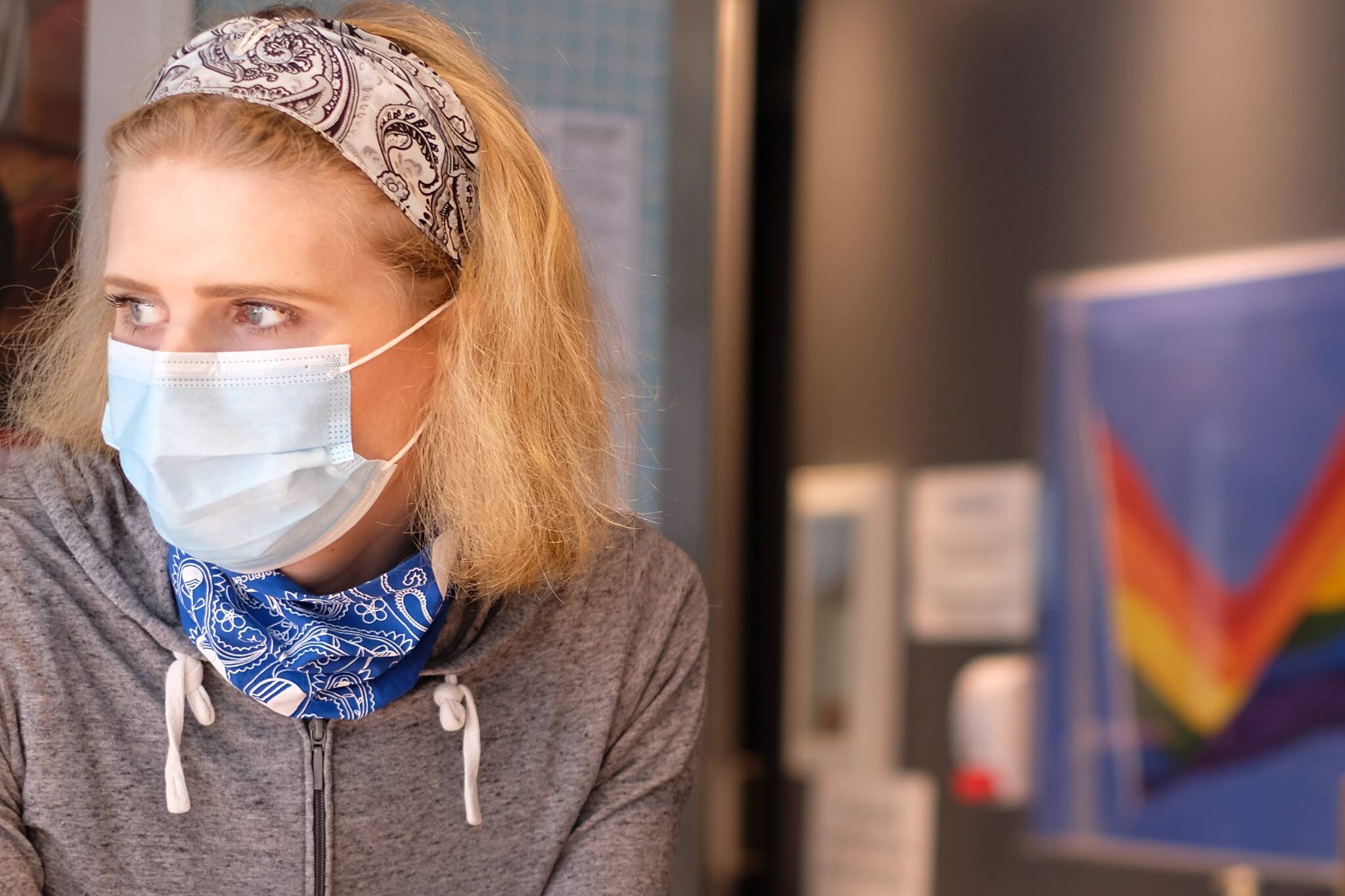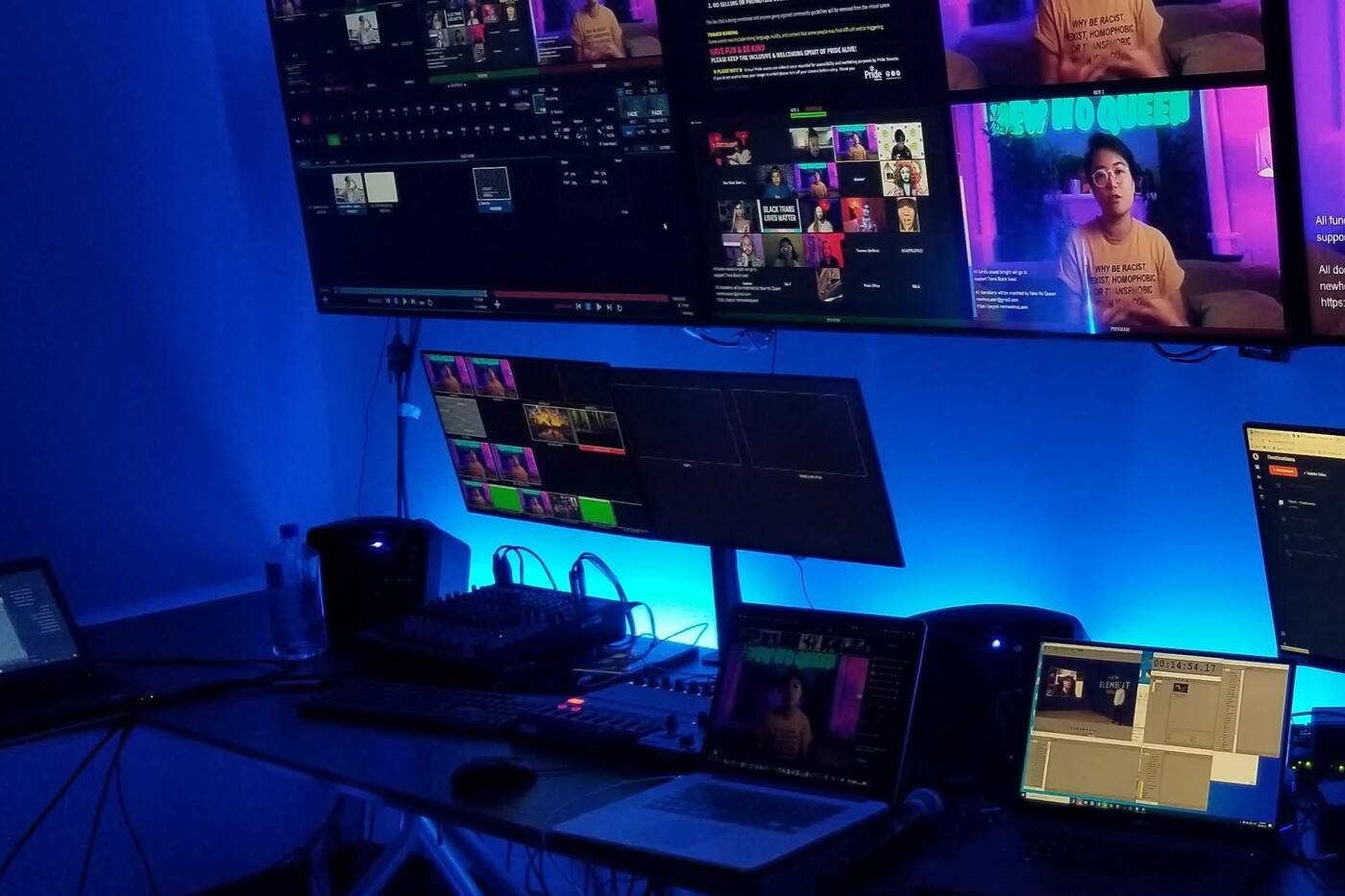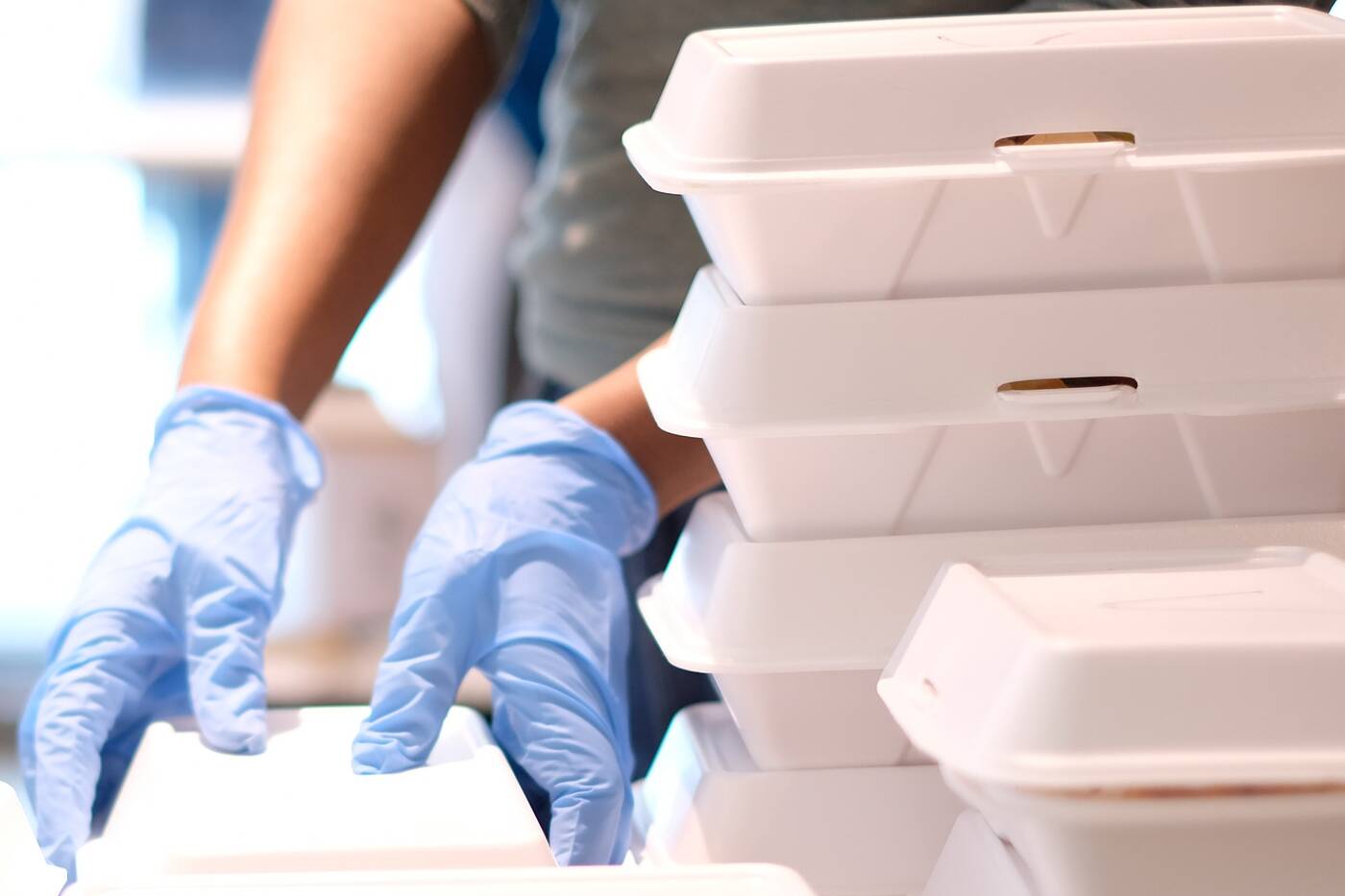
Queer community centres refuse to be threatened as lockdown continues in Toronto
It's difficult to view the impending one-year anniversary of the COVID-19 pandemic hitting Canada as anything other than a bleak milestone.
Despite this, numerous organizations continue to adapt when it comes to aiding their communities — and the queer community is no exception.
Pride Toronto, a major beacon in the LGBTQ+ community, has ensured that adjustments made during the pandemic not only match the needs of the city, but can also apply in the future if lockdowns endure.
Leanna DaCunha, the Programming Coordinator for Pride Toronto, is one of the many administrative members of Pride that looked the disruptive nature of the pandemic in the eye and refused to blink.
"We were impacted pretty massively, we had to shift from an in-person festival to a virtual festival. The in-person festival sees an influx of 1.7 million people and it's a really good impact for our city and our community," she said.

Pride Toronto's virtual stage during its 2020 celebration. Photo courtesy Pride Toronto.
Last summer Pride went virtual and certain concerns had to be addressed surrounding one of its fundamental pillars of operation — the contributing artists.
"We put together this kit of virtual equipment. So cameras, lighting and equipment were transported around the city to queer artists so they could record their program at home. Many artists are marginalized and may not have access to traditional equipment, so we did this as a way to support them," she told blogTO.
Plans for virtual initiatives in the future have been made easier with the success of last year's online festival.
"Things were gained as a result of the types of artists we were able to hire. We were able to do virtual art classes, virtual dance classes and we had way more speakers than we were able to apply in years before. We were able to diversify programming and expand on the number of artists we reached."
Pride Toronto ensures no artist gets left behind, but what does this shift in medium mean for the upcoming 2021 celebration?
"What we learned from last year and what we're leaning towards this year is looking to our community a bit more. Something that we are really big on this year is bringing Pride to the community, as opposed to bringing the community to Pride. It's all a matter of how can we expand Pride out of its bubble and bring it to certain communities directly."
This year marks the 40th anniversary of Pride Toronto and the festival aims to focus on the history of the queer community as well as Pride itself. Speaking to blogTO last week, what implementations the organization could still use remained fuzzy, as the state of lockdown continued to fluctuate.
"For festival programming, if we're able to do things outside and public health willing, there will be some in-person elements to our festival, as well as lining things up the the 'bringing Pride to the community' initiative," DaCunha said.
"It could end up looking like a few different things but it will give people a sense of connection and togetherness, especially after people haven't been able to connect for so long."
However, on Wednesday the City of Toronto announced that all events have been cancelled between now and Canada Day, meaning that the Trans March, Dyke March and Pride Parade will all be virtual once again.

Pride Toronto's virtual setup during its 2020 celebration. Photo courtesy Pride Toronto.
Meals and mental health
Pride Toronto isn't the only organization that is rapidly adjusting to the pandemic. The 519, an essential resource centre for the queer community, have planted their feet as well.
"There's a lot of unknowns in terms of how things are going to roll out. For The 519, our commitment has always been to our communities and our families.
"So what we did is we switched to an essential service, which means we are providing families with essential needs, like food and clothing," says Sharn Peters, Manager of Child and Family Programs at The 519.
In short, The 519 never shut down.
Peters is a driving force in departments that ensure children and families can access services they were ensured prior to the pandemic. These are essentials like family counselling, access to toys/activities and mental health workshops.
One significant system that was forced to adapt over the last year is The 519's Takeaway Meals service, where those in need can swing by the centre and acquire pre-packaged frozen meals. This program was originally a drop-in hot meals service that had to undergo an overhaul due to the escalating severity of lockdown.
The 519 is also at the forefront of working with other organizations, such as EarlyON Child and Family Centres.
The facility is also expanding its Friendly Check-In Program. The check-in service includes a weekly email or phone call that can be scheduled with staff to discuss the nature of one's well-being concerning isolation or ask questions about services that are available.
Unfortunately, it hasn't been easy to adapt to all of the obstables the pandemic presented, though, and the organization was dealt a major blow last November.
Several non-virtual programs that were in place were scrapped due to the city's expanding lockdown mandates.
"There was a lot of frustration, we brought back casual staff and on-site staff for it and they were excited to do stuff for the children that wasn't virtual programming," Peters told blogTO.
All this work isn't lost, as the foundations for these programs are still in place and The 519 is ready to implement them the minute it is deemed safe to do so.
"We did the work in November and were ready to launch, we didn't get to, we're ready to go now."
While these programs have been tweaked in accordance with public health policy, the drastic shift from in-person formatting to virtual has taken its toll on families and staff alike.

The 519’s Takeaway Meals service. Photo courtesy The 519.
"We all know children don't learn by watching a screen, they learn by interaction. So this hasn't just been very hard for families or parents, but also for my team," Peters said.
"A lot of people have been looking at this and saying that I don't want to be perpetuating this screen-time approach that doesn't support kids."
However, Peters still champions the work that needs to be done, regardless of format.
"We also know without some sort of interaction children can fall behind, so this is at least one way we can support them."
Some of these online support systems are programs like virtual playdates, Black & Indigenous Storytime where children can hear stories from these communities, and the Handle With Care workshop, a children's mental health course.
Thanks to The 519's team the needs of families within the community are being met, yet there is another at-risk factor that needs equal care, and that's the individual.
Kay Mehrizi is the Manager of Public Interest and Legal Initiatives with The 519 and has helped ensure that the organization's most impactful Counselling Services stay the course in the face of COVID.
"When COVID hit we had to act really quickly and be able to organize a remote services department that included a broad range of different services," Mehrizi told blogTO.
One of these rapid responses was the implementation of a drop-in call centre located at The 519.
"We're able to provide folks with a safe room with a phone and allow them to connect with a counsellor, with all safety restrictions in place."
This drop-in service has been essential to those who feel at risk making these calls from home or who don't have the means to do so. However, like any service that has undergone changes over the last year, it's not without its problems.
"We had to further brainstorm and examine the needs of communities. People were used to an established way of utilizing services and now had to do them over the phone — as you can imagine, that came with its own host of difficulties."
Not all is daunting with these new adjustments, as it is easier than ever to reach out for support. The 519 has designated drop-in times for those seeking to use this service, eliminating the need for an appointment.
No signs of slowing down
When it comes to concerns surrounding stretched resources and staff, it's not unreasonable to be anxious. Yet, just like Pride Toronto and other community centres in the city, they show no signs of slowing down in the face of increasing odds.
"We are a very tight-knit group of staff and have numerous staff group chats, there is always somebody available at any given time.
"If somebody is talking with a community member or client and if they notice a certain amount of struggle pertaining to that person in isolation they can quickly jump on and chat with us within a number of seconds."
What the next year will have in store is impossible to predict, and how it will impact communities in the city even more so.
In a year of rapidly vanishing critical locales and facilities, it's reassuring to know that the pillars of Toronto's queer community aren't going anywhere.
Photo courtesy The 519.
Latest Videos
Latest Videos
Join the conversation Load comments







